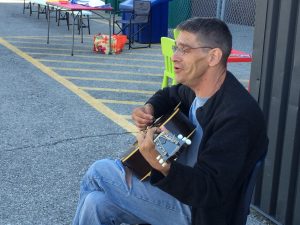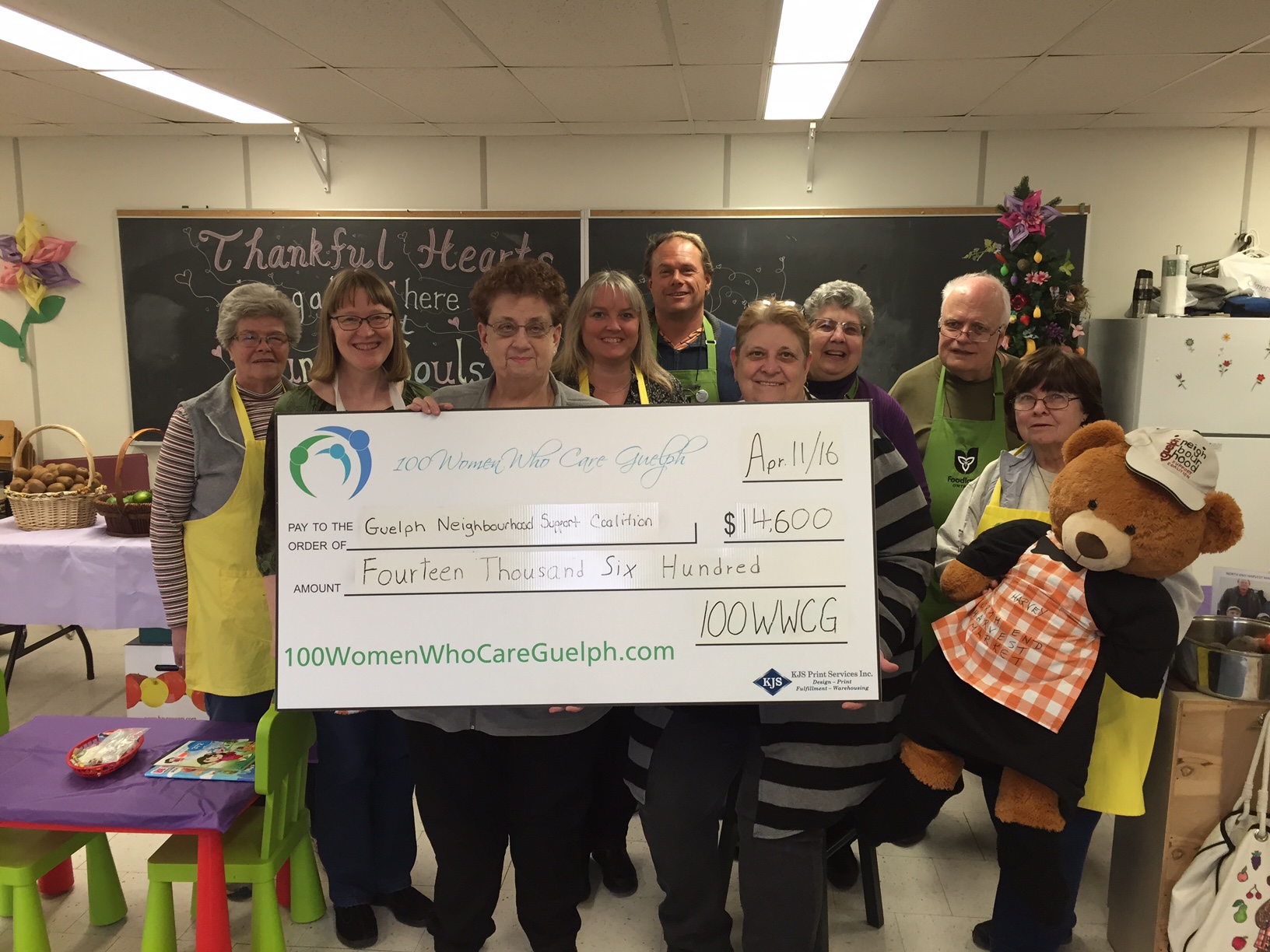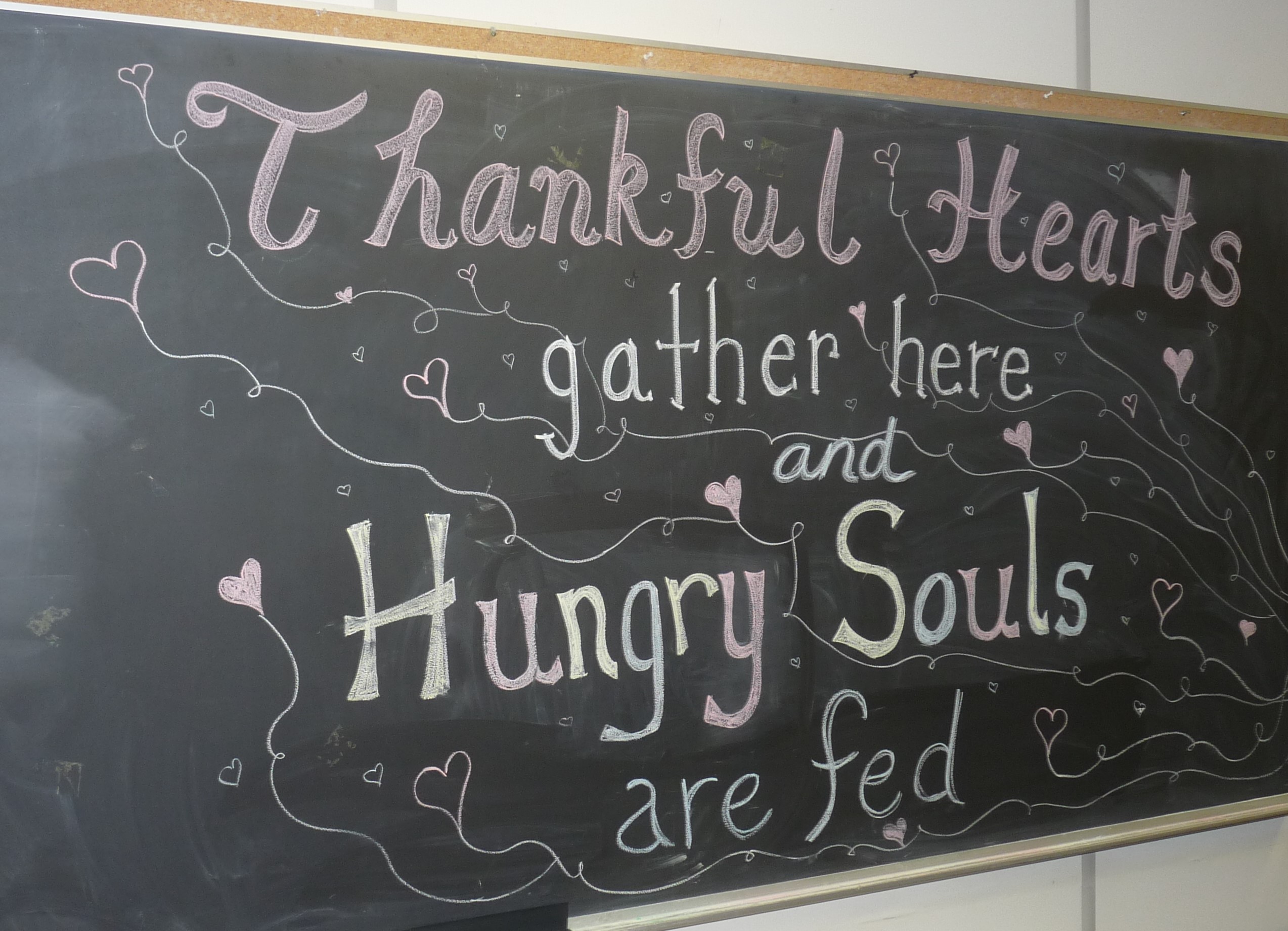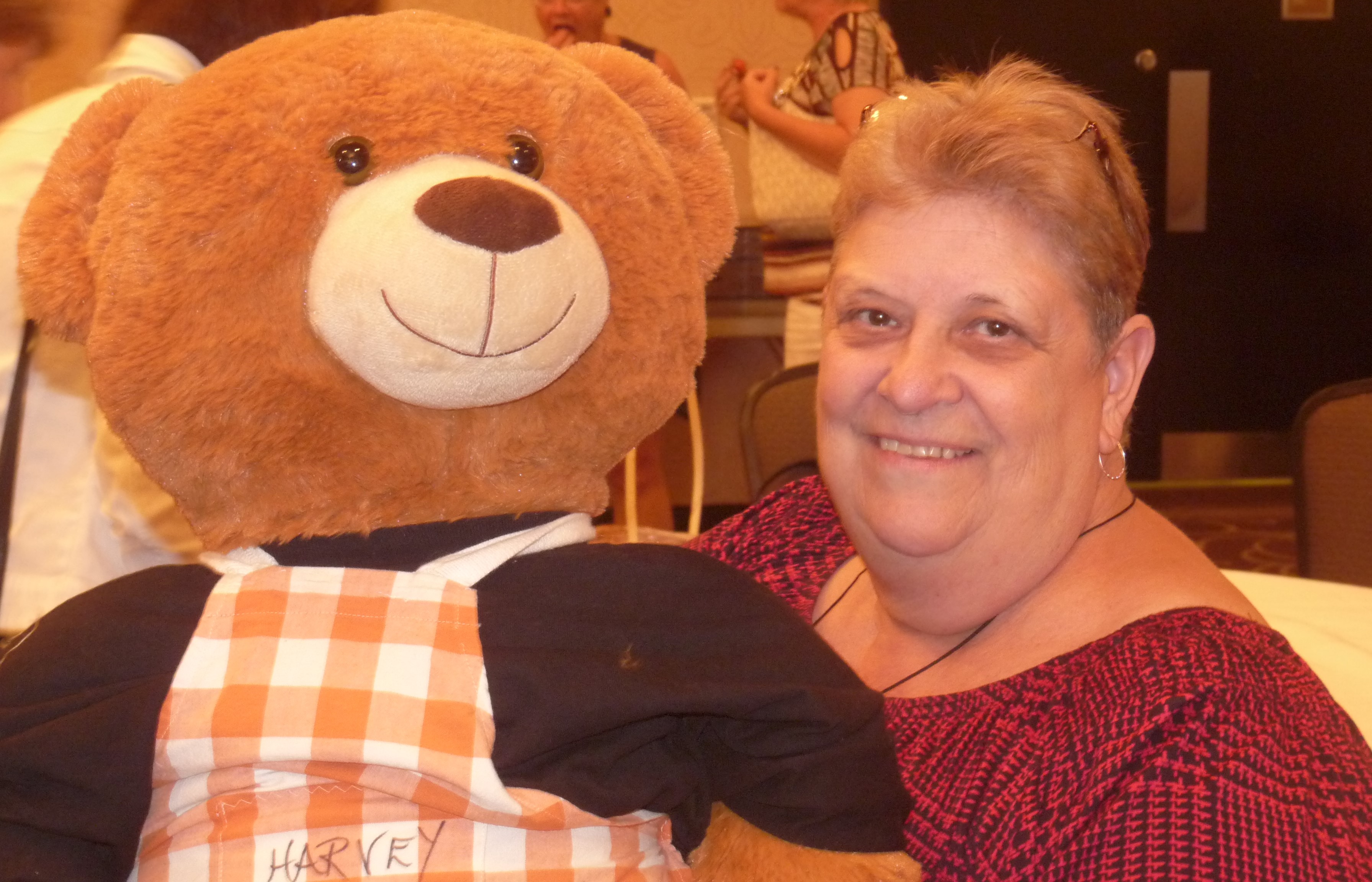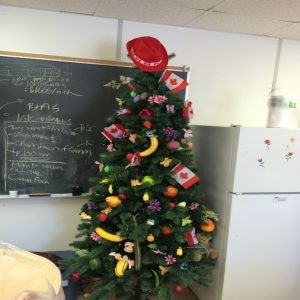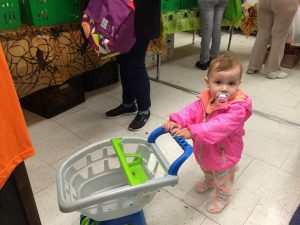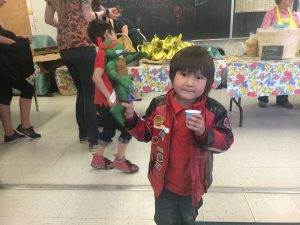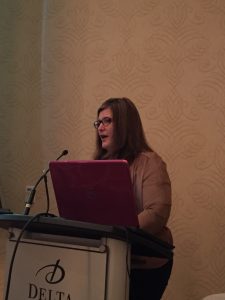We have asked for and received a copy of Nicole Fantin’s wonderful speech from our January 2015 Meeting. Hospice Wellington was the recipient of our first donation in October 2014. Nicole says:
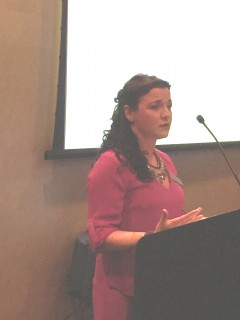
Nicole Fantin, Art Therapy Director for Hospice Wellington.
First off, I would like to thank you all for having me here this evening. It’s inspiring being in the presence of so many committed women, dedicated to making this community a more vibrant place to live, to work, to raise and live in family and community- and for myself personally, to support people in health and well-being.
My name is Nicole Fantin, and I am an Art Therapist who works for Hospice Wellington. I’ll also add that I may have cried when I heard that the program I started almost four years ago was going to be the first recipient from this amazing charity movement.
For those of you who don’t know too much about Hospice Wellington, we are a unique not-for-profit facility offering support to Wellington County through life threatening illness and the experiences of death and dying for both palliative residents and families in our community. In addition to a ten-bed residence, we have a full community service floor with a variety of community programming, including Art Therapy that is free of charge to Wellington County’s grief and bereavement population.
I introduced Art Therapy to Hospice Wellington almost four years ago as a student intern upon completing my graduate work in Art Therapy. I chose to volunteer and then work with Hospice Wellington for a number of reasons- grief being under researched and very rarely discussed in our contemporary society- but most of all because I saw a need, similar to the women who have chosen to support this charitable movement, a need to help and support a community that we all live within and believe in.
As I look around this room, I am greeted by familiar faces. Perhaps some of us have not known the loss of a mother, or a father, of a brother or a sister, of a child, or a friend. But we are not as a community unfamiliar to grief. As a community, we have had many losses. It connects us all, whether or not the loss has happened in our own home. We are friends to grief as we have all experienced it, in one way or another.
Grief often robs us of our words. We fall silent, overcome by emotions, not able to find the right words, words at all, to describe the pain, the confusion, the depth of our sorrow. It can leave us feeling alone, scared to acknowledge our pain, as everyone that surrounds us seems to be doing ok. One client aptly described their grief in the following way: “ It’s like my entire world stopped…and the world kept spinning. I have never felt so alone.”
Most people call me an art teacher, or that person that gets everyone dirty, which is probably true- the best description I think I’ve had is a passenger to a difficult life experience. As an Art Therapist, I provide a space that invites grief processing using art and creative materials, finding alternative modes of communication. The art becomes a vehicle for their self-expression, a space to encounter their grief gently, individually or in community. Rather than give you a summary of what art therapy is, I would rather describe it through the following experience of Art Therapy. I invite you to close your eyes. I would like you to bring an image of a cliff side to mind, set against a nature setting, with a full skyline. A solitary figure stands atop the ridge, looking out into the beyond. It is here that the image takes us within the story of a life:
“It’s like I’m standing on the edge of a cliff, and I can’t tell if it’s swirling water below or fire. I can’t stay where I am. I know I have to step over the edge.” These words capture the essence of the courage that is required to begin the therapeutic journey.
Sensing the urgency, fear, and the pain this client experienced, I suggested that he look at his painting and say, quietly: “ Yes, I know that feeling. That’s how it is when I begin journeys, too.”
The client seems relieved by my response, and I suggested that he invite me to join him as he stepped over the edge. He asked, “Will you make it less painful?”
I said, “No, but I’ll be there with you.”
This example describes a part of what I do. I passenger people through difficult parts of their lives, helping them journey through experiences that can leave them feeling broken and alone. And this description also illustrates the potentiality of metaphors in the artwork, using it to share and expand on emotion, experience and the individual journey.
And this is what you have supported, as more than a hundred women strong. I wanted to give you a scope of what your money has and will continued to be used for. What you have allowed is for experiences that otherwise may not have happened to happen, when voices and words are difficult to find.
Our core Art Therapy Program at Hospice Wellington is based on 16 hours per week. We rely on grant support and donations to augment our current programming. Thankfully, we receive generous donations of materials each year. The donation that 100 Women Who Care will go predominantly towards hours rather than materials, allowing us to minimize our constant waitlists and continue the growth of this programming to better serve our community.
The donation that 100 Women Who Care has made to this program will allow for us as a community to support those who are in need of grief services in the upcoming year. The funds you have provided will continue to go towards:
Nearly resolving our current waitlist for individual services, We have been able to double the amount of clients we are able to serve in our current individual programming, including legacy work for child loss, parent and spousal loss
The continuance of a group program originally funded by a well-being grant focusing on spirituality and finding community for grieving caregivers in our community
To begin weekend workshops introducing new clients to the use of Art Therapy scheduled to commence at the end of January 2015
To continue an open studio program supported for the continued well-being of community members struggling with life threatening illness and those who are recently bereaved, supported by community artists and volunteers
To reserve a basin of hours to use as needs present in our palliative Residence with clients facing end of life
It is true that your donation will make experiences possible that perhaps otherwise would not have happened. So what have you made possible, on a human level.
- You have made it possible for a little girl to complete a legacy quilt of memories that she and her mother shared before her mother passed away.
- You have made it possible for a widow to create in a medium that her husband once created in, a space that allowed for her to encounter his memory in a new, gentle way.
- You have made it possible for a family to receive support and celebrate the life of a child, in a way that was fitting to her memory, using creativity and community to find healing in the loss.
- You have indeed help support our community towards health and continued healing and you have provided me with the opportunity to make that possible in ways that we were unable to before.
Your contribution has made these things possible, and will continue to do so in the coming year. Thank you for this contribution. Thank you from all of us at Hospice Wellington for making a difference.
